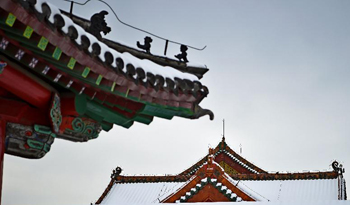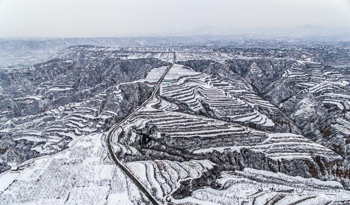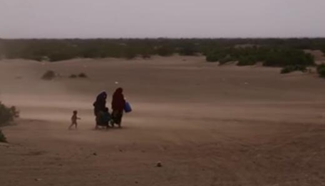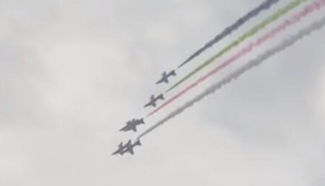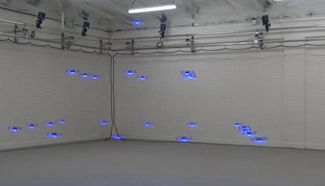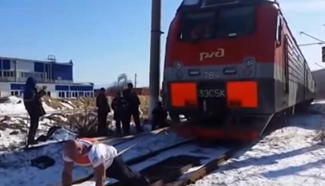DAMASCUS, Feb. 22 (Xinhua) -- The prospects of the fourth round of the intra-Syrian talks slated to begin on Thursday in Geneva are not promising, in terms of achieving a breakthrough, with a change in the international climate toward the Syrian situation, analysts say.
TURKEY BACK TO FAVORITE AMERICAN ALLY
Analysts believe that with the advent of U.S. President Donald Trump and his remarks about his willingness create safe zones in northern Syria have apparently opened the appetite of Ankara, which has for long been craving to create such zones on the Syrian side of the Syrian-Turkish borders, with former President Barack Obama reluctant to support such a step.
Late last year, Ankara allied with Russia to secure its interests in Syria, in terms of protecting key northern Syrian areas from the influence of the Kurdish fighters, and also to keep the Islamic State (IS) away from its borders.
The move then was read by observers as a result of the Turkish dismay with the former American administration's inaction toward fulfilling the Turkish desires.
Moreover, Ankara and Moscow brokered a nationwide ceasefire in Syria in late December of last year, which was accepted by both the Syrian government and the rebel groups, which are supported by Turkey.
Two rounds of talks took place between the Syrian government and rebels in Astana last month and this month and were also the result of a Turkish-Russian understanding, with the participation of Iran, a key regional ally to the government of President Bashar al-Assad.
The first round of the Astana talks achieved a breakthrough in terms of consolidating the ceasefire with monitoring mechanisms to oversee the abidance of all parties.
One important aspect was also separating the rebels from the ultra-radical groups such as the IS and the al-Qaida-linked Nusra Front, which was hailed by the Syrian government.
Between the two rounds, Trump voiced his desire to create safe zones in Syria, remarks that turned the heads of both Russia and Turkey.
The second round of the Astana talks reflected the change in the Turkish stance, analysts say.
"It's obvious that that Turks are back to the lap of the Americans, as before. If we look to the second round of Astana we will sense the change," a Syrian politician told Xinhua, asked not to be named.
The first change is in the Turkish representation, as it was minimized in the second round, unlike the first one, the politician said, adding that the rebel delegation wasn't also in the same representation as the first round.
The opposition delegation also arrived a day after the scheduled opening day of the second round, a sign of nonchalance.
Moreover, the second round of talks ended without any final statement, or fresh understanding.
"I think the second round of the Astana talks have failed, they haven't signed any paper or anything It's a sign that the Turks have changed their mind," he said.
RISING TENSION BETWEEN IRAN, TURKEY
Tehran and Ankara are again in a war of words as their relations are getting strained after the Turkish president criticized Tehran of pursuing "Persian nationalism" in the region.
Recently, President Recep Tayyip Erdogan visited Bahrain, Saudi Arabia and Qatar in a bid to boost political and economic relations, and Ankara signed a defense cooperation agreement with Sunni Riyadh, a move that irks its regional rival Tehran.
On top of that, in a speech in Bahrain, the Turkish president accused Tehran of meddling Iraq and Syria for, and promoting "Persian nationalism."
"Some people want both Iraq and Syria to be divided. There are some that are working hard to divide Iraq. There is a secretariat struggle, a Persian nationalism at work there. This Persian nationalism is trying to divide the country. We need to block this effort," Erdogan said on Feb. 14.
In response to the Turkish president's remarks, Iranian Foreign Ministry spokesperson Bahram Qasemi said, "among regional leaders, no one more so than Mr. Erdogan is aware of Iran's constructive role in the region, especially in Iraq."
"It is concerning that terrorist organizations in the region are being supported directly or indirectly to destabilize neighboring countries," said the statement on Feb. 15 without direct reference to Turkey.
In Munich Security Conference last weekend, the Turkish Foreign Minister Mevlut Cavusoglu joined the anti-Iran rhetoric of Israeli and Saudi Arabian ministers who signaled that they would cooperate with the new Trump administration in the region against Tehran.
In a speech at the conference, Cavusoglu accused Tehran over "sectarian policies" in the region.
The Turkish minister suggested that some of the actions of Iran had harmed the stability in the region. "Iran wants Syria and Iraq to make Shia," he said.
U.S. Vice President Mike Pence and the Turkish Prime Minister Binali Yildirim met on the sidelines of the Munich Conference, the first high level meeting between the two NATO allies since new Trump administration.
"Both leaders agreed that they would not allow Iran to undermine stability in the region," according to a press note provided by the White House.
Iran's reaction was not delayed. Iranian Foreign Ministry Spokesman Qasemi said on Monday that the Turkish minister's remarks were"not constructive."
His country was "patient," but this patience has "limits," the spokesperson said.
Iran's Foreign Ministry also summoned Turkish ambassador in Tehran Hakan Tekin on Monday over Turkish leadership's remarks.
"I think that the current tension between Turkey and Iran has also something to do with its back to the American ally, and also will negatively rebound on the ceasefire and the agreement reached in the first round of the Astana talks and the currently-undergoing ceasefire, not to mention the Geneva 4 talks," Ahmad Ashqar, a journalist and political analyst, told Xinhua.
SAUDI ARABIA BACK TO THE SHOW
After months of no remarks on Syria, and no words on the Astana talks, Saudi Arabia and other Gulf nations returned under the spotlight with fresh remarks reflecting the never-changing approaches.
Saudi Foreign Minister Adel Al-Jubeir said in Munich Security Conference On Feb.19 that solving the Syrian crisis politically is possible, adding that one of the biggest factors to do so is through help of the new American administration.
"Yes, I am very optimistic about the Trump administration." He said that the Trump administration could play a role in containing Iran, which he accused of being the major supporter of terrorism in the region, including in Syria.
"With regards to Syria, Iran has been a very destructive force," Al-Jubeir said, adding that "They have sent in Revolutionary Guards forces to prop up Bashar al-Assad. They have brought in Hezbollah from Lebanon. They have mobilized Shiite militias from Iraq, Afghanistan, and Pakistan to fight in Syria. Why are they doing this?"
These remarks are seen as will surely affect any political settlement in Syria, as the Syrian government is supported by Iran, and the rebels are supported by Turkey and the Gulf States, which are responsible for bankrolling the opposition rebels in their quest to oust President Assad.
Moreover, Al-Jubeir said on Feb.21 that the kingdom is prepared to send ground troops to Syria to fight the IS.
He told the German Press Agency on Tuesday that Saudi forces could battle IS alongside US special forces assisting US-backed Kurdish-Arab fighters.
Al-Jubeir said the aim of the deployment would be to ensure that "liberated areas did not fall under the control of Hezbollah, Iran or the regime," adding that recaptured areas could be handed over to rebels.
If happened, the move will embolden the rebels into pursuing further in their battles, and put aside any form of understanding or political settlement with the Syrian government.
U.S. MULLS SENDING BOOTS ON GROUND IN SYRIA
Aside from the Saudi statement on the readiness to send troops, the United States is also said to may send troops into Syria, which will further complicate the situation.
According to Gen. Joseph Votel, the commander of American forces in the Middle East, more U.S. troops could be sent into Syria to help in the fight against IS.
Iranian Foreign Minister Mohammad Javad Zarif said on Friday that the deployment of troops by the United States to Syria to fight the terrorist groups in the country would adversely fan flames of extremism in the Middle East.
"I believe that the presence of foreign troops in Arab territory is a recipe for those extremists to rally behind and gain new fighters from disenfranchised youth," Zarif said.
INTENSIFICATION OF MILITARY SHOWDOWN
The Nusra Front, which is designated as a terrorist group by the international community due to its ties with al-Qaida, unleashed a wide-scale offensive in Syria's southern province of Daraa in recent days, succeeding to make a progress against the government forces in the Manshiyeh town, whose falling in the hands of the Nusra will jeopardize the government-controlled areas in Daraa, near the Jordanian borders.
The Islamic State also unleashed another attack in Daraa against other rebel groups in that area. The escalation is seen as a renewed violence that will further escalate.
SITUATION MAY DEVELOP TO MORE MILITARIZATION
Maher Ihsan, a Syrian journalist and political analyst, told Xinhua that with the shift in the Turkish stance toward the American ally, the re-emergence of the Gulf States as backers of the rebels, as well as the adamant stance of the Saudi-backed opposition that demand the departure of Assad will all cast heavy shadow on the Geneva 4 talks.
"The situation is moving toward further military escalation... Trump is a businessman he gave the green light to Turkey to make the safe zones in northern Syria, which pushed Turkey to shift alliance again, and now Ankara is pitted against Tehran and I think the Russians will regret trusting the Turks," he said.
He added that Tehran and Moscow, both allies to the Syrian government, will not surrender and will fight till the end.
Regarding the Geneva talks, he said that there will be no breakthrough.
Even Staffan de Mistura, the UN special envoy to Syria, didn't have high expectations of the talks in Geneva.
"Am I expecting a breakthrough? No, I am not expecting a breakthrough," he told journalists at the UN headquarters on Wednesday, a day before the start of the fourth round of talks in Geneva.
Still, he said he was determined to maintain "a very pro-active momentum" to allow for political discussions on governance, a new constitution and elections under UN supervision, based on the UN Security Council Resolution 2254.

